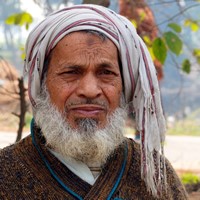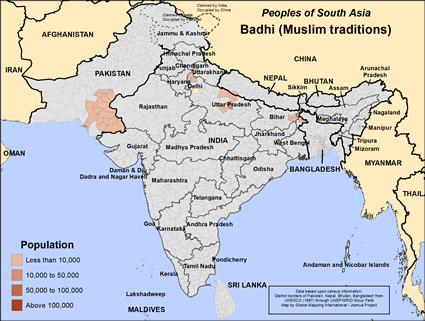A community of Muslim carpenters, part of the Saifi in the Muslim caste-system, are called Badhi or Shershabdia. Though the Hindi tradition states descent from deity, the Muslim tradition claims descent from early Muslim settlers in northern India. More likely, they are Muslim converts from the Hindu Badhi caste.
Many present-day Shershabdia have moved into farming or agricultural labor. Though the settlements where they live may be populated by multiple castes or religions, the Muslim Shershabdia occupy their own quarters. There is very little interaction between the Shershabdia and other Muslim groups, despite close proximity. Even intermarriage with other groups is almost non-existent.
Muslims are taught at an early age that Christianity is based on a corrupted Bible, so they must rely on the teachings of the Koran.
The Shershabdia speak Hindi, a language that has many gospel materials. These they can obtain at home through their cell phones.
Pray for loving gospel workers to catch a vision for reaching the Shershabdia people for Jesus and that in God's sovereign timing the hearts of these people would be open and ready to follow him.
Pray for Jesus movements to bless extended families so the gospel will spread rapidly.
Pray for the spiritual lives of the Shershabdia people to become fruitful so others will be drawn to Jesus Christ.
Scripture Prayers for the Shershabdia (Muslim traditions) in India.
| Profile Source: Joshua Project |












